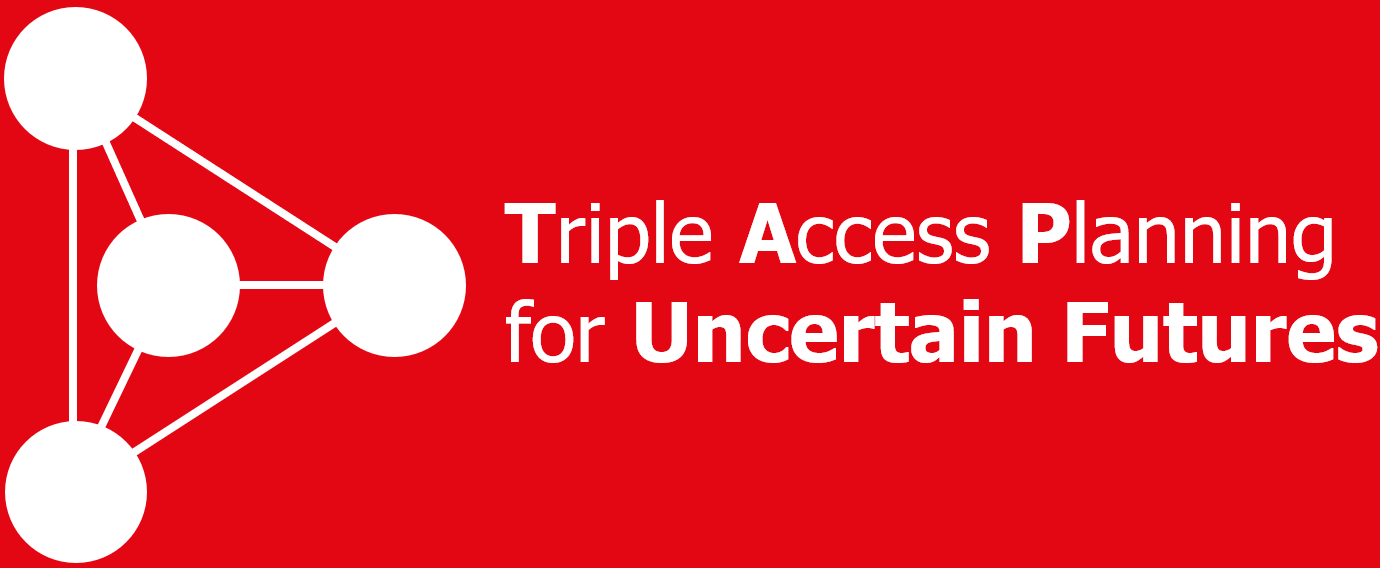
Urban transport is facing an increasing number of problems. Increasing urbanization, lifestyle changes, and growing use of the private car, have placed the mobility of persons and transportation of goods under pressure in many cities. Traditional policies, including new infrastructures, park-and-ride facilities, improved public transport, road pricing, time-frames for goods delivery, etc., seem insufficient to handle this pressure. Innovative solutions have been proposed to improve traffic performance (e.g. intelligent vehicles, automated goods transport), travel decisions (e.g. Mobility as a Service, advanced travel info), and activity behavior (e.g. mobility hubs, e-shops, teleworking). The implementation of these solutions, however, is surrounded by many uncertainties regarding external developments (e.g., technological progress, economic developments, climate change, demographic developments), the possible consequences of these developments for urban transportation system performance (e.g., impacts on traffic flows, safety, the environment), and the way crucial stakeholders will value these consequences (e.g., changing preferences leading to different modal choices).
The question is how to deal with these uncertainties. Traditional approaches, based on advanced modeling and impact assessment, are not capable to handle future trend breaks very well. Future times do require a radically different way of thinking. The question is how to arrive at good decisions under deeply uncertain conditions? We still base most policy on the principle of Predict and Act; you try to predict roughly what the future will look like, for example by specifying a limited number of plausible scenarios. Based on this, you specify a policy or take certain measures that work relatively well for all scenarios. But we’ve come to the point where we simply don’t know what the future holds and what the consequences will be. Think about climate change. The speed of climate change is controversial, but there is also a lot of discussion among scientists about the possible consequences. Even with traditional scenario approaches, you cannot act on that adequately. Therefore, a different way of thinking is required, called Prepare and Adapt.
The basic concept of Prepare and Adapt is easy to explain. It is analogous to the approach used in guiding a ship through a long ocean voyage. The goal – the end point – is set at the beginning of the journey. But, along the way, unpredictable storms and other traffic may interfere with the original trajectory. So, the policy – the specific route – is changed along the way. It is understood before the ship leaves port that some changes are likely to take place – and contingency plans may have already been formulated for some of the unpredictable events. The important thing is that the ultimate goal remains unchanged, and the policy actions implemented over time remain directed toward that goal (if the goal is changed, an entirely new plan must be developed). However, reassessment does not mean completely starting over, as the knowledge of outcomes, objectives, measures, etc., learned during the initial process would accelerate the new planning process. An adaptive policy would include a systematic method for monitoring the environment, gathering information, implementing pieces of the policy over time, and adjusting and re-adjusting to new circumstances. The policies themselves would be designed to be incremental, adaptive, and conditional.
Prepare and adapt means that you have to think in terms of how can my initial policy fail and, if so, what actions should be prepared to intervene and adjust my initial policy. It is therefore very important to monitor developments closely, to consider under which (future) conditions you should intervene, and what the adaptations should be then. Does that require different knowledge? To some extent yes, but we should start using our existing knowledge in a different way. Existing knowledge should be used in a way that it contributes to a different way of thinking – explorative thinking – in terms of problems (uncertainties) as well as solutions (transport and non-transport system solutions). Generating explorative knowledge is one thing, implementing it in practice is another thing. We know for instance that spatial and telecommunication policies have high potential (although also uncertain) to reduce urban transport problems. However transport policy-making is often organized in such a way that non-transport solutions (e.g. in the field of land-use or digital connectivity) are at least difficult to include.
Developing and implementing such an adaptive policy will not be easy. There are significant legal, political, and analytic barriers to be overcome. However, compared with traditional policy-making, the adaptive approach is highly promising in terms of handling the range of uncertainties related to urban transport policy-making.
__
Vincent Marchau is professor in Uncertainty and Adaptivity of Societal Systems at the Institute for Management Research, Radboud University, Nijmegen, and member of the Triple Access for Uncertain Futures project team.
